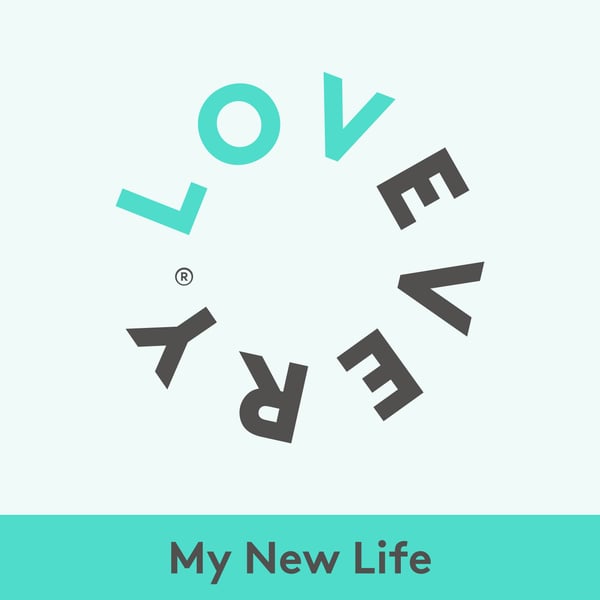How to Build Your Toddler’s STEM Skills at Home
My New Life
Kate Garlinge
4.7 • 654 Ratings
🗓️ 7 October 2020
⏱️ 26 minutes
🧾️ Download transcript
Summary
Babies are born wondering. They have to piece together the world around them by gathering information, and they do this by observing, experimenting, and asking questions. In this way, children are like little scientists. If you have a toddler in the house, there’s no shortage of questions in your daily conversations. But is it a two-way street? How many questions are you asking your toddler?
Jessica Rolph welcomes Dr. Sarah Lytle to today’s episode. She is the Director of Outreach and Education at the Institute for Learning & Brain Sciences (I-LABS) at the University of Washington. She says parents have a critical role to play in promoting early learning and STEM (science, technology, engineering, and math). And this starts with asking questions of your toddler.
Key Takeaways:
[1:26] What does STEM learning look like for toddlers?
[2:42] Early math skills are a strong predictor of later school achievement. Does Sarah’s research support that finding?
[3:49] How do you make math part of the every-day with your toddler?
[5:06] Guided play versus instructing.
[7:52] The power of narration for preverbal children, as well as for toddlers.
[9:06] Sarah gives examples of how parents can shift from a narrative style to an inquisitive one: Why do you suppose birds live in trees?
[11:50] Sarah explains the scientific concepts children are learning while playing with water. She models some questions parents can ask their children while they are splashing around.
[14:35] We tend to associate technology with screens, but what kind of technology learning is Sarah promoting at I-LABS that is screen-free?
[15:55] What kind of tools can support spatial awareness?
[17:53] Sarah offers her advice for parents around block play and suggests how parents can really get engaged and help their children discover the joy of learning through blocks.
[19:09] Women continue to be under-represented in STEM fields. Sarah explains how to encourage little girls to have positive experiences in STEM from an early age.
[20:46] What did Sarah’s parents do to get her excited about science?
[21:32] What other activities can we do with our toddlers that really bring math, science and engineering to the forefront?
[23:49] Jessica summarizes the key takeaways from their conversation.
Mentioned in this episode:
Brought to you by Lovevery.com
Learn more about I-LABS
Transcript
Click on a timestamp to play from that location
| 0:00.0 | Parenthood is a time of so much change for you and your baby. |
| 0:12.7 | A little reliable information can go a long way towards making this new life a good life. |
| 0:18.6 | I'm Jessica Rolfe, and this is my new life, a love every podcast. |
| 0:29.1 | Babies are born wondering. They have to piece together the world around them by gathering |
| 0:34.1 | and they do this by observing, experimenting, and asking questions. |
| 0:40.6 | In this way, children are like little scientists. If you have a toddler in the house, there's no |
| 0:46.2 | shortage of questions in your daily conversations. But is it a two-way street? How many questions |
| 0:52.6 | are you asking your toddler? Dr. Sarah Lytle joins me on |
| 0:57.0 | today's episode. She is Director of Outreach and Education at the Institute for Learning and Brain |
| 1:02.6 | Sciences at the University of Washington. She says parents have a critical role to play in scaffolding |
| 1:09.1 | early learning in STEM, science, technology, engineering, |
| 1:12.7 | and math. |
| 1:13.5 | And this starts with asking questions of your toddler. |
| 1:17.4 | Hello, Sarah. |
| 1:18.8 | Hi, Jessica. |
| 1:20.5 | It's so great to have you here. |
| 1:22.5 | I'm so excited to explore what does STEM learning look like for toddlers. |
| 1:27.3 | Sure. So STEM, so science, technology, |
| 1:30.7 | engineering, and math is really a set of skills that hang together because they have a common way |
| 1:36.1 | of thinking, exploring, and creating for kids. So STEM skills use evidence to gain knowledge. |
| 1:43.4 | You're creating new things. You're solving problems. And toddlers are using STEM skills constantly. If you think about what the job of toddlerhood is, it's really to make sense of the world around them. And that very fundamentally involves STEM skills. So if you think about children as little scientists, they're |
| 2:01.7 | performing these experiments over and over again to see what happens and to see what rules kind of |
... |
Please login to see the full transcript.
Disclaimer: The podcast and artwork embedded on this page are from Kate Garlinge, and are the property of its owner and not affiliated with or endorsed by Tapesearch.
Generated transcripts are the property of Kate Garlinge and are distributed freely under the Fair Use doctrine. Transcripts generated by Tapesearch are not guaranteed to be accurate.
Copyright © Tapesearch 2025.

